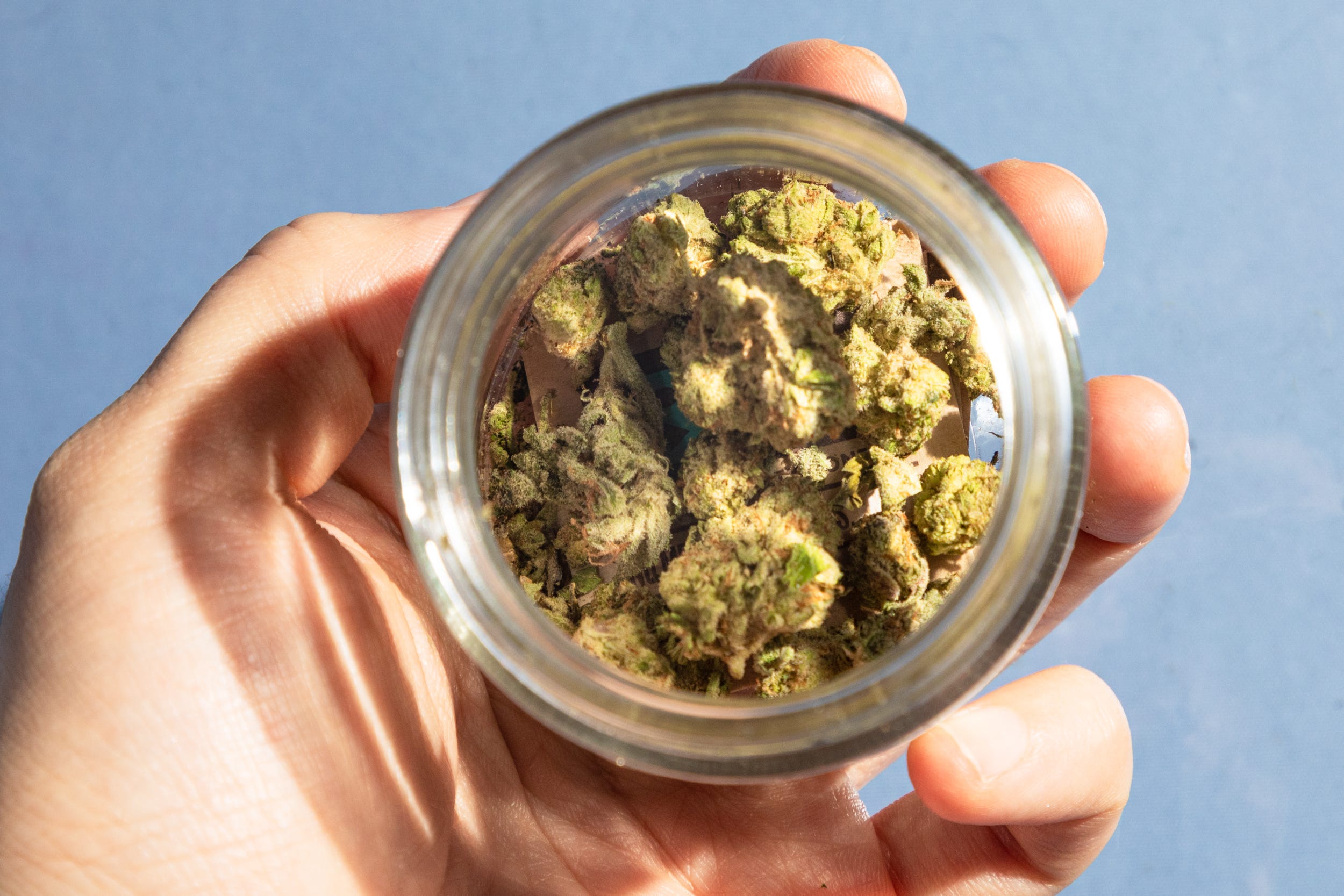
- Pregnant women with cannabis use disorder are more likely experience negative birth outcomes: NIH.
- Premature delivery, low gestational age, and even infant death were more common in moms with CUD.
- Cannabis use in pregnancy is on the rise, and research is mixed on how harmful it may be.
- Visit Insider's homepage for more stories.
Pregnant women with cannabis use disorder, or CUD, are more likely to deliver premature or underweight babies than moms without the condition, the largest study of its kind, out of the National Institutes of Health, found.
The study adds to growing evidence of a link between cannabis use in pregnancy and negative birth outcomes, though it can't prove a cause and effect.
Cannabis use disorder is different than occasional use, and involves meeting criteria like continuing to use cannabis even if it's led to negative physical and mental consequences, developing a tolerance to the substance, and spending a lot of time thinking about or using it.
Ongoing research in the area is critical as cannabis becomes increasingly legalized and destigmatized across the country, and some women find it relieves morning sickness and other pregnancy symptoms.
The study found babies born to moms with cannabis use disorder were 35% more likely to die within the first year of birth
For the study, published Thursday in the journal Addiction, researchers from UC San Diego analyzed the medical records of 4.83 million moms and their infants born in California between 2001 and 2012. Cannabis became legal in the state for recreational use in 2016.
Of the nearly 5 million moms, 20,237 had medical records noting CUD at the time of their delivery.
Rates of CUD among study participants increased from 2% in 2001 to 6.9% in 2012, but the authors suspect the numbers are higher since the diagnoses were based on self-reports given to providers, not clinical evaluation. What constituted cannabis use disorder likely varied between providers, who could choose to mark down the term or not.
The researchers found that, compared to moms with similar demographics and health conditions and behaviors, moms with CUD were 13% more likely to deliver babies small for their gestational age, 6% more likely to deliver prematurely, 13% more likely to be underweight, and 35% more likely to die within the first year of birth, although death was rare.
In contrast to prior research, the study also found that infants born to moms with CUD were less likely to visit the hospital in their first year of life. That could be because the few babies most severely affected by cannabis died, but those less affected remained relatively healthier than those whose moms didn't have CUD, the researchers speculated.
"Because we are looking only at medical records, there is a lot we don't know about the mothers and infants in this study," lead author Dr. Yuyan Shi said in a press release. "But our analysis supports the recommendation that health professionals screen for and address cannabis use disorders in their pregnant clients - to protect both their health and potentially the health of their infants."
Tobacco use and race also played a role
The study authors also looked at how tobacco use affected birth outcomes among moms with CUD. They found babies born to moms used both cannabis and tobacco were more likely to be preterm, have a low birth weight, be hospitalized, or die than those who didn't use tobacco.
Race played a role too, with babies born to Hispanic moms with CUD more likely to be hospitalized and die than babies whose moms were white and had CUD. Black moms with CUD were more likely to have newborns that were small for their gestational age than white moms with CUD.

The study could not prove cause and effect, so other factors, including paternal cannabis use, could be at play, the authors write.
There were other limitations, like the fact that some women who have CUD were likely misclassified as those who didn't use cannabis, skewing the results. And, the findings may not apply to pregnant people who use cannabis infrequently. The study authors also weren't able to parse out whether factors like the cannabis dose, how long and frequently it was used, and how it was consumed mattered.
Cannabis use in pregnancy is on the rise, despite warnings
Marijuana use during pregnancy in the US increased from 2.9% in 2002 to 5% in 2016, according to a January 2019 letter in JAMA Pediatrics that's based on a 2018 national drug survey.
An NIH webpage from August 2019 says about 7% of pregnant women self-report marijuana use, and rates are closer to 10% among 18- to 25-year-olds. As many as 19% of pregnant women that age test positive for marijuana when they're screened.
Many use the substance to alleviate classic pregnancy symptoms like nausea and vomiting, which crop up in an estimated 70% of pregnancies, Insider's Julia Naftulin previously reported. With marijuana now legal for recreational use in 16 states and Washington DC, and two more states joining the fold this summer, rates of use in pregnancy are likely to rise.
That's concerning to health officials. In 2019 the FDA issued a statement saying it "strongly advises" against the use of CBD and THC, two of the main compounds found in cannabis, while pregnant or breastfeeding.
Experts say THC can reach developing children through the placenta, and newborns through breast milk. Plus, the compound can disrupt the endocannabinoid system, which plays a key role in supporting a healthy pregnancy and fetal brain development, the NIH says.
Some experts say some of the risks of cannabis may be overblown
Not all scientists agree the alarm around cannabis in pregnancy is necessary or even evidence-based. One 2020 comprehensive review of 40 studies on the topic showed there were only very minor differences in cognitive performance between kids whose moms used cannabis in pregnancy and those who didn't; in some cases, the children of cannabis users performed better.
The differences were more or less negligible, the researchers wrote, since the children exposed to cannabis in utero still "overwhelmingly" fell within a normal range of cognition, when education and age were taken into account.
"We are concerned that a misunderstanding of the relationship between prenatal cannabis exposure and subsequent cognitive functioning leads to an oversimplification of the complex relationships between socioeconomic factors and functioning of the individual whether drug use is involved or not," the study authors wrote.
"Misinterpretations of the complex interactions of relevant factors in itself can cause harm to pregnant women and their children," the said, "by leading to punitive policies and enhancing unwarranted stigma."
